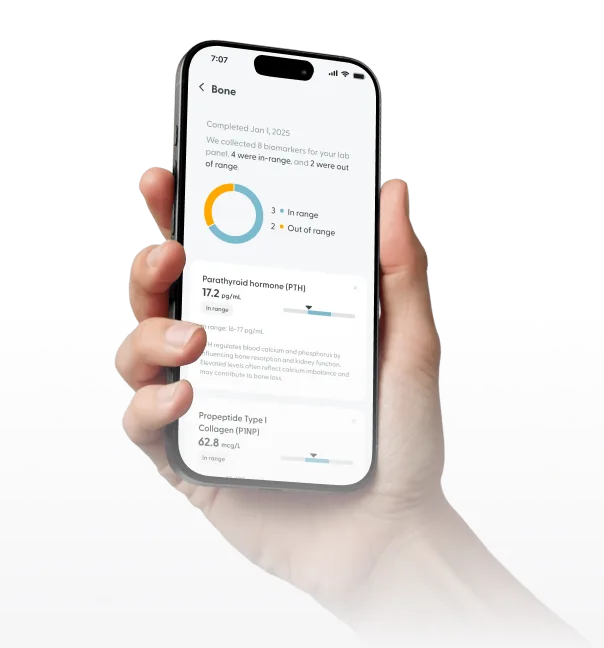Schedule
Book a telehealth appointment from wherever you are. No insurance necessary.
Achieve your weight-loss goals with GLP-1 treatments like Wegovy® and Zepbound®, guided by licensed providers every step of the way.
Personalized care for women, with HRT and lifestyle support to ease menopause symptoms and restore balance.
Simple, supportive mental health care on your terms, including access to prescription medication when appropriate.
Care without the wait—connect 24/7 with licensed providers for same-day prescription refills and common concerns like colds, flu, rashes, and more.
Talk to a doctor anytime, anywhere — 24/7 urgent & primary care with a telehealth visit in under one hour.
Get your medication prescribed online and sent same-day to your local pharmacy for pickup.
Save time, money, and the hassle — no in-person visits or insurance required.


Prescription treatments are tailored to your specific condition, ensuring effective relief.

Urgent evaluation is crucial to identify your condition early and prevent complications.

Accurate testing, if needed, can confirm your diagnosis and guide the best course of treatment

Licensed providers can send prescriptions to your local pharmacy within an hour, day or night.

step 1
Book a telehealth appointment from wherever you are. No insurance necessary.

step 2
Meet with a board-certified doctor or nurse practitioner from your mobile device.

step 3
Get a prescription if needed (save up to 90%), and pick it up at your pharmacy.
Nasal congestion is a common condition in which the nasal passages become swollen and inflamed, making it difficult to breathe through the nose. It can be caused by a variety of factors, including allergies, colds, sinus infections, and nasal polyps.
If you’re experiencing nasal congestion, LifeMD can help. You may be prescribed medications such as nasal sprays, decongestants, antihistamines, or corticosteroids, depending on the cause and severity of your symptoms.
In some cases, your doctor may recommend additional tests to determine the cause of your nasal congestion. By working with a doctor, you can develop a treatment plan that’s tailored to your individual needs and effectively manages your nasal congestion.
Get Started Get Started
Total Cholesterol

37 mg/mL
In range

LDL (Low-Density Lipoprotein)

47 mg/mL
In range

Triglycerides

158 mg/mL
Above range

A combination antihistamine and decongestant used to relieve symptoms of seasonal allergies and nasal congestion, such as runny or stuffy nose, sneezing, and sinus pressure.
A nasal spray that contains a low-dose corticosteroid and saline solution. It is used to treat nasal congestion, runny nose, and sneezing.
A combination penicillin-type antibiotic used to treat a wide variety of bacterial infections. This may be prescribed if nasal congestion is the result of a sinus infection.
“Dr. Puopolo is a very knowledgeable doctor with vast experience in different medical fields. I feel I am in good hands.”
Verified Patient

“Great experience!! Never have done online telehealth before but for sure will again :)”
Verified Patient

“Dr. Culpepper was amazing. He explained things to me that I didn’t understand.”
Verified Patient

“Dr. Sehgal was amazing! Super helpful. She was answering my questions before I even asked. Very happy I picked her.”
Verified Patient

"The appointment went great. It was quick and easy, and the doctor was right on top of things!"
Verified Patient

Reviews shown are from verified LifeMD patients across various services. Photos are for illustrative purposes only.
Nasal congestion, also known as a stuffy or blocked nose, is oftentimes caused by inflammation and swelling of the nasal passages. This can be triggered by a variety of factors, such as viral or bacterial infections (the common cold or a sinus infection, for example), seasonal allergies, irritants (such as smoke or strong odors), and even certain medications. The swollen nasal passages can restrict airflow, leading to difficulty in breathing through the nose and a sensation of congestion.
Yes, changes in weather can cause a stuffy nose. Cold, dry air – or sudden weather fluctuations – can dry out nasal passages or constrict blood vessels, leading to nasal congestion. Weather-related allergens like pollen or mold spores can trigger nasal congestion as well. Some people may be more susceptible to experiencing a stuffy nose due to weather changes than others.
A stuffy nose can be caused by a variety of factors such as colds, allergies, a sinus infection, or even dry air. Therefore, the duration of a stuffy nose will vary depending on the underlying cause and individual factors. In many cases, a stuffy nose resolves on its own while in other cases, it may persist for a longer period of time or require treatment with over-the-counter nasal decongestants or prescription medications.
If you’re concerned about the duration of your stuffy nose or if it’s accompanied by severe symptoms or complications, be sure to consult with a licensed health provider.
Nasal congestion at night can happen for a variety of reasons. When you lie down, increased blood flow to the nasal passages – as well as gravity – can cause nasal tissues to swell, resulting in congestion. Allergens in the bedroom (such as dust mites, pet dander, or pollen) can also trigger nasal congestion. Dry indoor air (which is common during winter when heating is used) can dry out the nasal passages, leading to congestion as well.
Using a humidifier, elevating your head during sleep, and avoiding allergens can help alleviate nasal congestion at night.
In some cases, nasal congestion can be a symptom of a more serious condition, such as chronic sinusitis, nasal polyps, or other underlying medical conditions. If nasal congestion persists or is accompanied by other concerning symptoms, be sure to consult with a healthcare provider to determine the cause.
Nasal congestion can sometimes be a symptom of COVID-19. COVID-19 can present with a wide range of symptoms, including nasal congestion or stuffy nose, along with cough and sore throat. Keep in mind that nasal congestion can also be caused by other conditions such as colds, allergies, sinusitis, or respiratory infections – so it's not always specific to COVID-19.
Yes, nasal congestion can sometimes cause a temporary loss of taste. When the nasal passages are congested due to conditions such as colds, allergies, sinusitis, or respiratory infections, the ability to smell can be affected – which can impact sense of taste. The sense of taste is closely linked to the sense of smell, and when the ability to smell is compromised, it can lead to a diminished sense of taste.
Once nasal congestion clears, sense of taste typically returns to normal. If your loss of taste persists or is accompanied by other concerning symptoms, be sure to consult with a healthcare provider for a proper evaluation and diagnosis.

Family Medicine
4.93 stars 170 reviews


Internal Medicine
4.98 stars 178 reviews


Internal Medicine
4.92 stars 261 reviews


Family Medicine
4.94 stars 178 reviews


Hormone Specialist
4.92 stars 163 reviews
